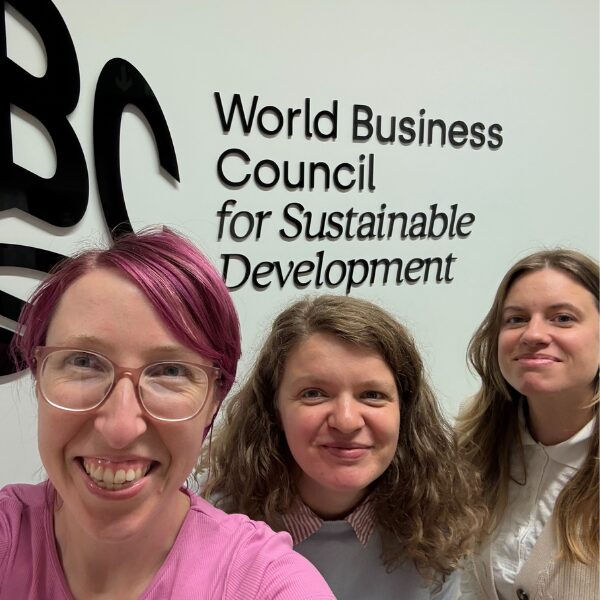SBC’s Head of ESG Jay Crangle has been busy visiting the headquarters of the World Business Council for Sustainable Development (WBCSD) in Geneva. She shares ten takeaways from the frontlines of business and climate action.
1. “On course but lacking speed”
That’s how the Managing Director of We Mean Business described the global transition to a zero-carbon economy. Despite geopolitical turbulence, businesses are moving forward. But in many places climate action remains under the radar, with companies wary of political backlash.
2. The rising influence of India and China
Most people I met with noted emerging markets like India and China are increasingly recognising the strategic importance of sustainability for long-term growth and resilience. Driven by the opportunity for pollution reduction, clean air, and economic growth, these economies are central to global sustainability transitions and are already having a significant influence on corporate risk, investment flows, and sustainability priorities.
3. Less talk, more action
There’s a growing sense that the conversation around climate is sometimes overshadowing the action. Between regulatory compliance, trade rules, and reporting requirements, businesses are investing heavily in proving they’re doing the right thing – sometimes at the expense of having the time and resources to actually do it.
4. “Sunshine is free, oil costs money”
The economic case for climate action is front and centre. I heard countless variations of, “it needs to make financial sense.” Encouragingly, the mood shifted when it was announced that renewable energy production had finally surpassed fossil fuels. The economic imperative is real – and it’s gaining traction.
5. Value chains
WBCSD has more than 250 member companies, and a staggering 80% of their emissions sit in Scope 3. Tackling these indirect emissions is a major focus, and initiatives like the Emissions Reduction Accelerator that WBCSD will be launching at COP, are helping companies take meaningful steps.
6. Nature, enter me
A gradual, global shift toward nature-positive business models is happening, with companies looking to integrate nature into strategy and risk management. The businesses furthest ahead in this journey are emphasising systemic change, not incremental steps, to build resilience and unlock opportunities in a nature-positive economy.
7. “Too much, too little, too polluted”
Water is emerging as the next big climate issue. It’s the link between nature and climate, and the driver of many extreme weather events. Clean water is a universal need, and the UN Water Conference has elevated it to the top of the global agenda.
8. “Society is the economy”
Nature is finally getting its due in business circles, but the next frontier is people. WBCSD’s concept of an “integrated transition” highlights the economic opportunity in workforce transformation. Expect an analysis from WBCSD quantifying the potential in equity, jobs, and training.
9. The dark arts
Some companies are saying the right things publicly while quietly lobbying against climate action behind closed doors. Transparency around policy influence is essential, and both We Mean Business and WBCSD are pushing for alignment between internal actions and external messaging.
10. Did someone call security?
Language matters – especially in complex supply chains and in the US context. WBCSD is framing sustainability as a security issue: secure supply chains, long-term resilience, and competitive advantage. While the moral imperative remains, the messaging is increasingly focused on future-proofing.

